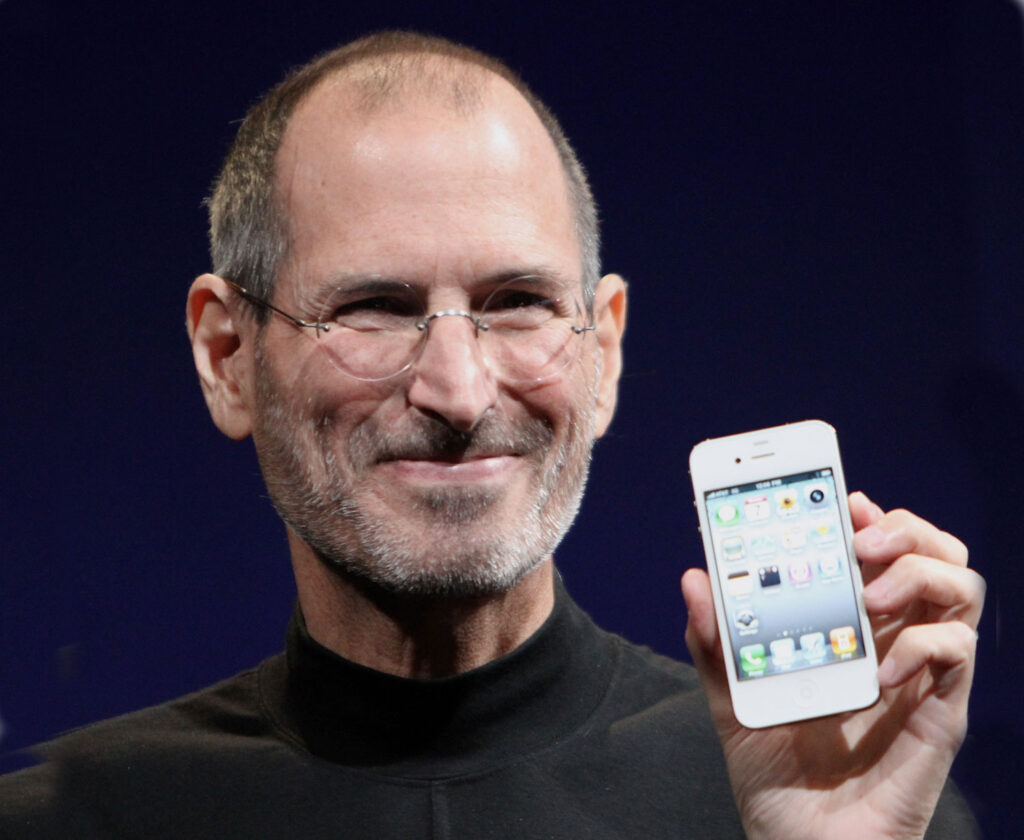
The legacy of Steve Jobs may never be equaled: The Apple II, which jumpstarted the personal computer industry. The Macintosh, which changed the way people use personal computers. The iPod, which was easy and fun to use, and took over the MP3 player market. The iPhone, which has revolutionized mobile phones. The iPad, which is leading the way into what he calls “the post-PC world.”
As CEO of Apple, he did things his way: no market research, no focus groups. He didn’t ask what consumers wanted. He simply intuitively knew what they would like, and he demanded that his company create it.
He was well known for being fiercely critical and not being satisfied until a product was exactly what he envisioned. His employees feared him, feared the meetings in which he would tear a person’s idea to shreds. But they were loyal — because he’s simply brilliant and charismatic.
He micromanaged everything: from the number of buttons on the phone to the shape of the iMac. And if the engineers didn’t get it right, didn’t come up with something that fit his vision, he made them start over.
Jobs didn’t always get things right the first time. When the MacBook Air launched, people liked its svelte form factor but complained about various things: lack of ports, overheating, slow hard drive. But he knew what he wanted, and despite a lackluster start, he focused on having his engineers improve it. Now it’s there. Five-star ratings from reviewers, and flying off the shelves. It’s grabbing so much of the laptop market that other manufacturers, as they always do with Apple products, are racing to emulate it. Intel is now touting their vision of an “Ultrabook,” basically their name for MacBook Air-like computers.
He didn’t care about the bottom line. His only thought was to realize his vision. Take the original iPod, which used a microdrive — a tiny hard drive inside the device. It was revolutionary at the time, but eventually he realized that the future was the solid state flash memory being used in later models of iPod.
So he killed the microdrive model— even though it was still making a profit for the company and contributing to the bottom line. It was history simply because it no longer fit his vision. How many other companies would do that?
Many of Jobs’s products were initially ridiculed. When Apple announced it was developing a smartphone, many commentators were full of scorn: what does Apple know about phones? How can they imagine they’ll possibly succeed in this market against the established players.
Four years later, Apple is the largest smartphone manufacturer in the world in terms of units sold, and the iPhone is Apple’s leading product, generating well over twice as much revenue as its computers. Most smartphones today emulate the iPhone form factor and touch interface.
And the iPad has completely rocked the PC world. Fewer people are being desktop computers, and more are buying iPads. A recent survey found that 94.5% of those planning to purchase a tablet computer were interested in getting an iPad. Market analysts keep talking about the growing market for tablet computers. But a Mac enthusiast commented, “There’s not a growing market for tablet computers; there’s a growing market for the iPad.”
Apple recently passed Exxon to become the most valuable company in the world. It actually has more cash than the U.S. government. And it’s only in the beginning stages of getting the iPhone and iPad into the world market, where the demand is huge — especially in China. Revenue is just going to keep rising.
It’s interesting that many of Steve Jobs’s biggest coups weren’t because Apple was the first to enter the market. There were MP3 players before the iPod, smartphones before the iPhone, tablet computers before the iPad, etc. But he had a knack for knowing intuitively how it should be done, what would make it more charming and friendlier and elegant and easier to use for the user.
Just when the TV market is in the doldrums, rumor has it that Apple has something new in the pipeline — yet one more potential transformation.
And it hasn’t just been gadgets. Jobs revolutionized the music industry, for example, with his iTunes store. CDs disappeared, and people actually began paying for the music they downloaded online rather than getting it illegally from file sharing sites.
Also, Jobs’s Pixar, founded during the period he wasn’t with Apple, has become the top maker of animated films.
Will Apple still lead the way now that Steve Jobs has stepped down as CEO? We can only hope
© 2011 by Jim Karpen, Ph.D.
